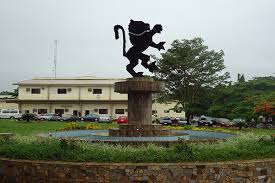The former of Anambra State, Mr Peter Obi, is spearheading a drive for N5billion development fund for University of Nigeria, Nsukka.
The former governor recently inaugurated the development fund, which is meant to address infrastructure challenges in the University of Nigeria, Nsukka.
The focal point of the fund is getting the alumni of the university to contribute to the development of the institution in the country.
UNN is first truly indeginous University in the country.
Obi, an alumnus of the university of the class of 1984, inaugurated the capital campaign at the 60th Founders’ Day celebration of the premier university where he featured as the guest lecturer.
Obi is not pleased with the pace of development in the university.
He projects that alumni of the institution should get more involved they would make a lot of difference.
He said that unfortunately the alumni had had very little or nothing to help their Alma Meter.
Under the plan, the fund raising campaign would run for a period of five years with a target mobilisation of N1 billion annually from alumni of the university effective from 2021.
According to Obi, “If about 10,000 alumni of the university can come together and make annual contribution of N100,000.00 each, we should be able to raise one billion yearly to help our Alma Meter. ”
He promised to pay two per cent of annual fund mobilisation.
He also said he would make funds available to the management of the university to furnish office apartment from where the fund drive would be coordinated and judiciously utilised.
“I will be fully involved and will personally supervise activities of the office,” he promised.
The Vice-Chancellor of the University, Prof Charles Igwe, in his remarks, lamented the deplorable state of infrastructure in the university.
Igwe noted that the University of Nigeria was the only first generation university in the country without a Senate building.
He said that it is unfortunate that the Senate of the University “still meets at a make-shift venue furnished with plastic seats” and that the space is no longer adequate for the growing number of professors in the university.
The Vice-Chancellor picked out the problem of power supply for special mention, saying that the monthly energy bill of the University “which stands at over N70,000,000 always leaves a hole in the pocket of the university.”
“Being able to generate our own electricity, like some of our peers, would be a huge relief to the university,” he said.














